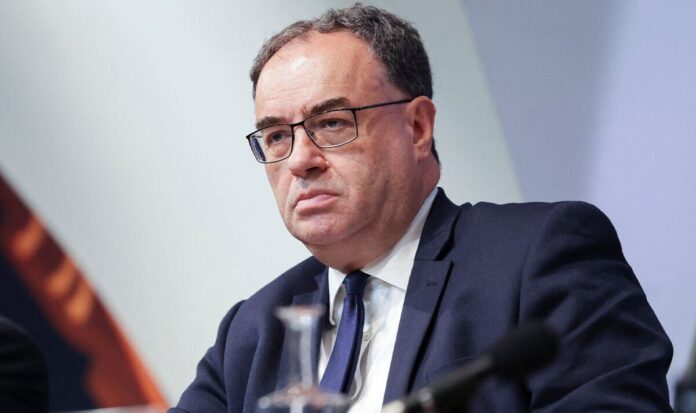The base rate has increased to 5.25 percent (Image: PA IMAGES) The Bank of England has increased the base rate by 0.25 percentage points to 5.25 percent. It was eight to one for the 0.25 percentage point rise, however, two members of the MPC voted for a higher increase of 0.5 percentage points. Millions of homeowners will face soaring rises in their mortgage payments after the Bank of England has once again raised the interest rate. This has taken the cost of borrowing above five percent and to its highest level since the financial crisis in 2008. The increase would lift the cost of monthly repayments for anyone on a variable rate mortgage and increase the prices of new home loans offered to first-time buyers and anyone re-mortgaging when coming off fixed-rate deals. Around 1.4 million homeowners on variable rate deals, such as base rate trackers, will see an almost immediate rise in their monthly repayments following the latest Bank rate rise, according to UK Finance. The Bank’s MPC uses interest hikes as a means of cooling the economy and taming rising inflation (Image: EXPRESS) As an example, a tracker rate rising from five percent to 5.5 percent costs around an extra £58 a month on a £200,000 loan taken over 25 years, with monthly repayments rising from £1,170 to £1,228. Borrowers on fixed-rate deals won’t see any difference in their monthly payments. However, when the deal is, many will be in for a huge shock as the mortgage deals will be much more expensive. Soaring mortgage rates have put a squeeze on affordability for millions of homeowners. UK inflation is expected to drop below 5% in the final few months of 2023, allowing the Prime Minister to meet his target of halving inflation by the end of the year, according to new projections from the Bank of England. The Bank predicted that Consumer Prices Index (CPI) inflation will fall to 4.9% in the final quarter and remain above 2% until mid-2025. The recent easing of price rises has been driven largely by a fall in international energy prices, which are set to reduce the average UK household’s energy bill to below £2,000 a year by October. The Bank added in its report: “Food price inflation, which has a particularly large impact on the living costs of lower-income families due to it making up a larger share of these families’ budgets, remains extremely high.” But it expects annual food inflation to fall to around 10% by the end of the year as lower input prices make their way down the supply chain. Interest rates are on the rise (Image: GETTY) House prices are falling at their sharpest rate in 14 years, with borrowing costs continuing to rise. Property prices have dropped 3.8 percent over the past year in the biggest downturn since July 2009, according to Nationwide Building Society. In the past 12 months nearly £10,400 has been wiped off the value of the typical home, which is now worth £260,828. Even with lower house prices, the high-interest rates make monthly payments expensive. To manage costs, many people are opting for longer mortgages. First-time buyers who were taking on mortgages of more than 36 years has now more than tripled since 2021 to 27 percent, Taylor Wimpey said. The Bank’s MPC uses interest hikes as a means of cooling the economy and taming rising inflation. The Consumer Prices Index (CPI) measure of inflation fell to 7.9 percent in the 12 months to June.
Mortgage nightmare continues as Bank of England hikes interest rates to 5.25%
Sourceexpress.co.uk
RELATED ARTICLES


